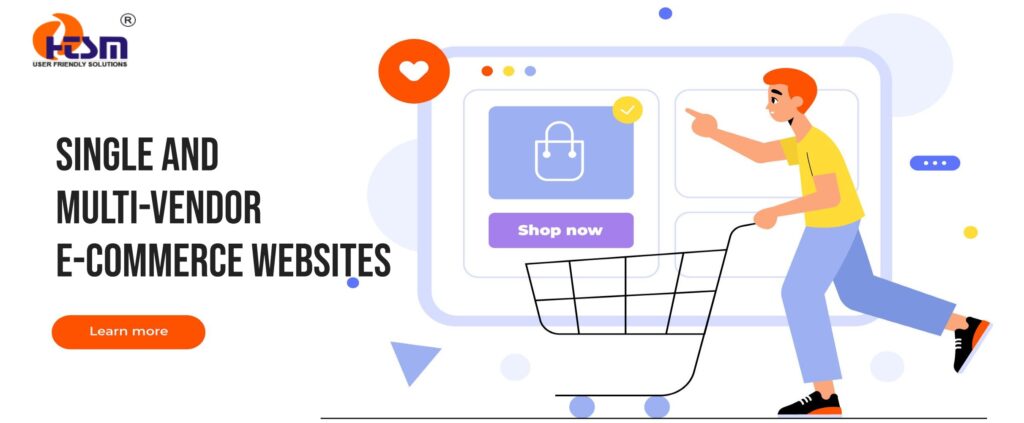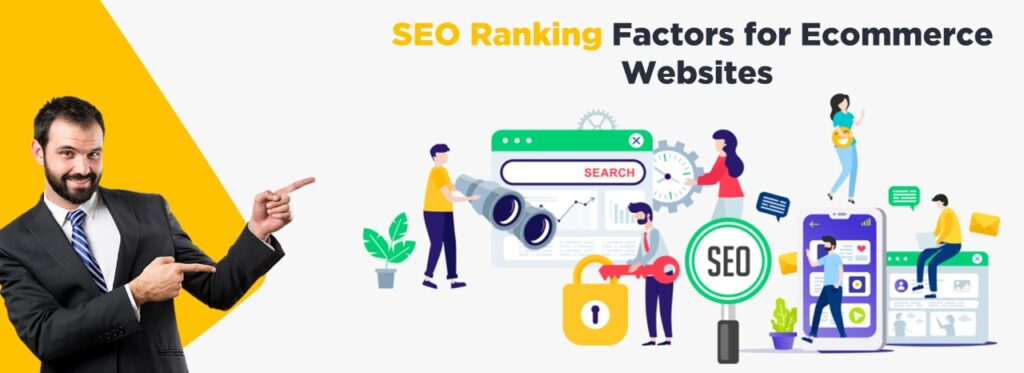The process of selecting a platform is considered by many firms to be the core of their business marketing strategy. It is an absolutely correct thought process! Building an eCommerce website is not difficult now, but your business can suffer significantly if you start with the wrong eCommerce platform.
Hence, it is crucial to determine the right platform for your eCommerce website. There are numerous solutions available depending on your requirements, but it can be difficult to predict which eCommerce systems will provide the best functionality concentrating on your needs while being cost-effective.
Features of eCommerce Platforms
Here are some features that will make the platforms reliable for your business.
- An eCommerce platform should offer natively unified eCommerce, accounting, POS, inventory, order management, marketing, and customer support on a cloud-based platform.
- Customers will be able to purchase, fulfill, and return things in the most expedient method possible. Centralized order management to magnify profit rates.
- Choose a platform that allows you to provide customers with responsive, courteous, personalized, and rewarding mobile, web, and in-store experiences.
- To ensure the security of your store and the data it holds, choose a platform that has an SSL certificate and PCI compliance.
- A good eCommerce platform should provide consistent user experiences, targeted marketing, and outstanding customer service.
Top 6 eCommerce Platforms
- Shopify
Shopify is, without a doubt, the most well-known eCommerce platform worldwide. They power over a million eCommerce websites in a variety of industries and product categories.
It is a web application that allows you to quickly and easily construct an online store using one of the many accessible templates. You can modify those templates to match your online retailer’s needs, or you can create your own store’s design. With Shopify’s drag-and-drop interface, creating an online store is even simpler. Most newcomers to website creation can get accustomed to it in a matter of minutes.
Shopify is also quite adaptable. It’s used by both small organizations and major corporations. According to the company, you don’t need any technical or design knowledge to develop a gorgeous internet store effortlessly.
Shopify’s award-winning 24/7 support is another standout feature, which you’ll have access to even when you sign up with Shopify.
With Shopify POS, you can sell products from your online store, as well as through social media platforms, online marketplaces, or in-person.
- BigCommerce
BigCommerce is a powerful all-in-one eCommerce platform that includes everything you’ll need to start selling online. The platform’s low total cost of ownership and very versatile APIs are also some of the prominent features. It allows your business to integrate with the majority of the essential eCommerce systems right out of the box.
This platform can be used by businesses that serve both B2B and B2C consumers because it makes it easier to build multiple pricing lists or catalogs for different customer groups.
BigCommerce also makes managing sales across different channels a breeze. Customers will be able to buy from multiple sites like Amazon, eBay, Instagram, and Facebook.
By using any of the adjustable templates, you can create your store, sell, and market your products. You can even customize your online shop with zero knowledge of coding. It’s geared for folks who don’t have a lot of web development experience and also allows techies to adjust the HTML and CSS.
- Squarespace
Squarespace is a user-friendly platform that allows people with no technical experience to build attractive websites. Except for the entry-level plan, Squarespace features a fully integrated eCommerce platform built-in for every aspect.
They have attractive templates and design skills. It is well-known for its award-winning designs, which have propelled it to the forefront of website designing from world-renowned designers.
Squarespace’s premium plan enables you to recover abandoned carts, sell subscriptions and gift cards, and offer adjustable discounts. The other primary features are adjustable promotional pop-ups and banners, automatic shipping rate calculations, customizable discount rules, custom API connectivity, and limited availability labels for promotional use.
- Wix
Wix is one of the most user-friendly eCommerce platforms across the globe; they offer simple and creative ways to create a full-fledged website with serverless computing and no code. It is one of the greatest fits for fresh new online companies with an inexpensive price, 72 free themes, and an extremely simple setup.
The best thing about Wix as an eCommerce platform is its easy-to-use interface. The platform allows you to design a website in your own unique style. You can choose a template and personalize it to include everything you want in your store. You may constantly add additional features to your store as it expands to improve its performance.
Wix’s eCommerce services have significantly improved, and they now include multi-channel integration, abandoned cart recovery, dropshipping, and print-on-demand options.
Wix allows you to create a mobile-friendly version of your store, which benefits both you and your customers. You can customize the mobile interface by switching to Mobile Editor.
- Magneto
Magento is one of the world’s most popular eCommerce platforms. Despite its reputation for being extremely difficult to use, this platform has many advantages making its way on top. You can make changes and undo them until you have the feature-rich web store you desire in magneto.
With the release of Magento 2, the platform has advanced to a new level, allowing numerous providers to offer more effective solutions for B2B eCommerce businesses.
The community of Magneto is its key highlight. It has a significant number of developers who are willing to work on your store for a fee or answer some of your inquiries. There’s also a marketplace where you can buy extensions and themes to improve your platform’s functionality.
Magento makes it easier for your online stores to interface with third-party modules or apps like MailChimp and Google Shopping. With SEO efficiency, online retailers have a better chance of ranking well on search engines like Google, Bing, and others search engines.
It’s risky to use Magento if your company is new to the eCommerce scene and lacks much-needed tech knowledge. As long as you have sufficient capacity to run your business on this platform, you can grow your company alongside it.
- WooCommerce
WooCommerce isn’t like the other platforms we’ve looked at thus far. Rather than being an all-in-one eCommerce platform, it’s an eCommerce plugin for WordPress. It converts WordPress sites into online stores for free, as well as offering additional paid features and integration possibilities to streamline the shopping cart’s functionality.
This open-source platform is great for small businesses with limited WordPress development resources because it is simple to configure. WooCommerce is the most widely used eCommerce platform on the planet. WooCommerce is used by about 30% of all online retailers throughout the world. Any WordPress website can be converted into an eCommerce store with WooCommerce.
If you’re going for this platform, be cautious about what you install because it could affect your store’s performance. Choose the right hosting environment for your store, which will influence how much traffic it can manage. With the addition of products and consumers, most users reported that it slows down.
Bidding Words
Choosing an eCommerce platform might be difficult because there are so many different options available. Fortunately, you can narrow down your choices by setting your goals and determining your needs.
Whatever path you take while creating your website, make sure the platform ensures your website to be updated regularly, offers hassle-free payment methods, and provides solid security norms.
This guide, I am sure, will help you locate what you need, whether you’re a newbie looking for an eCommerce website builder or an experienced developer looking for advanced software for B2B sales.





